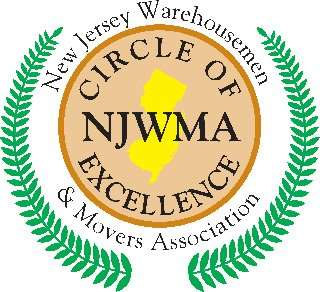Tips for Relocating Your Small Business
Small businesses all share one common characteristic – they change. Sometimes you’ll grow and require more space, while other times you may decide to concentrate your efforts to plan for future changes. In either case, you may find that a change of scenery is what you need.
Whether your destination is bigger or smaller than the one you’re using now, relocating your small business isn’t always easy. And given how something as simple as items getting lost in transit can have big consequences for the business, moving is always a tense subject for small-business owners.
So what is the right method for moving your small business? While every operation may be different, there are some best practices that should be followed. Many moving companies and commercial moving experts advise making good habits during the moving process. Adhering to these can make it easy to relocate your small business.
Make Plans in Advance for Commercial Moving
Business is all about planning. And if you’re running a small operation that is looking to grow, you probably know all about how scheduling can play an impact in your result. Contact the necessary parties including moving companies, building owners, or other vendors well ahead of time. Doing so can make it easier to focus on other aspects of your move.
Just How Far Ahead Should You Plan?
Planning out your move is a unique experience. It depends largely on how much you have to transport, where your destination is, and a variety of other factors. Understanding exactly what your commercial moving situation requires can help you know how far ahead to plan. It’s better to plan ahead in case things change during the process.
Make Lists of What Needs to Go
What is everyone’s greatest fear when it comes to moving? Obviously, leaving something important behind ranks at the top of the list. And if you’re a small-business owner, you know that even a small loss can be costly for your operation. So, what should you do to make sure this doesn’t happen? The answer is simple – stay organized.
Commercial moving requires you to keep track of everything that needs to go. From your equipment to your files to any personal items, document everything. You can even double-check it as necessary. Write it down once before the moving begins, and then verify it has been placed in the appropriate vehicle for transport later on. A thorough approach like this can save you from a lot of stress during your commercial moving process.
Make Things Easier with Labels
Since you’ll probably be boxing a lot of things up during the moving process for your small business, it is a good idea to label all storage containers you use. Not only does this make it easier to stay organized, but it allows you to keep track of your moving checklist more efficiently. Nothing will slow you down more than having to stop, open a box, check its contents, and reseal it before you can pack it away.
Assigning Vehicles for Certain Items
Once things are packed away, they are ready for transport to your small business’s new location. But the moving process doesn’t end until everything is unpacked. And an easy way to do this is to have assigned vehicles for certain items. Placing equipment in one area and files in another allows you to grab what you need. And having your storage containers labeled makes this part of the process easier as well.
Canceling Utilities and Cleaning
When you’re moving your small business out of one building and to another, you may be extremely excited about reaching your new destination. But while you may be thinking ahead, it is a good idea to remember any responsibilities you may have at your current location first. For example, you may have utility services that you need to have disconnected. These could include:
- Electricity
- Internet
- Phone (Traditional or VOIP)
If you have vendors or other organizations that meet with you regularly, it is important to tell them about your relocation ahead of time. Any services that you need to do such as cleaning should be planned out for after the moving process as well.
You may elect to schedule certain services like cleaning and service cancellation during the end of your moving process. This is why it is a good idea to plan ahead and stick to a schedule.
Planning Your Move-In
As mentioned, the moving process doesn’t end until your small business is all set up in its new location. But even if you have your items in separate vehicles, you should also plan out the move-in process in steps. For example, heavy equipment like desks, chairs, cabinets, and other furniture items should go in first. With more room to work, movers can get the items in more safely and quickly.
The next step depends on exactly what items you’re moving in. You may choose to get the bigger pieces of your office equipment in first, or you may decide to store your important files at the beginning. In either case, moving your items in the right order will help the process go much more smoothly.
Calling in the Professionals
While you may be fine carrying boxes and storage bins full of files and office supplies, certain items are more difficult to move. Heavy equipment is best handled by those who are experienced in commercial moving. Improper transport of heavy equipment can result in damage to people and property, meaning it’s a task best left to the professionals.
Keep Your Team Informed
The final and most important piece of advice is to keep your employees and partners informed during the moving process. Moving a small business can have good results in the long term, but it can also disrupt things in the interim. Make sure to notify all relevant parties of the process so that when you do finish with the commercial moving process, everything can get back on track for your small business.
When your small business has outgrown its current location, it’s time to bring in professionals to assess your commercial moving plan. Sinclair Moving and Storage has the experience to manage your small business moving project from start-to-finish.








